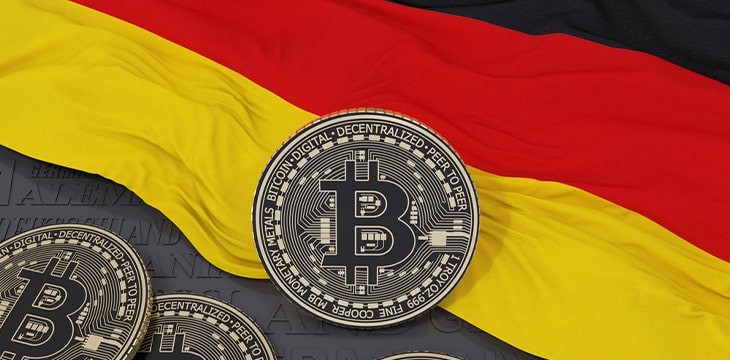|
Getting your Trinity Audio player ready...
|
Germany has long ranked as one of the most digital currency-friendly countries and is looking to cement its position further. The German Ministry of Finance (BMF) has issued the country’s first comprehensive guidance on the income tax treatment of digital currencies.
The guidance amends the country’s tax laws to accommodate digital currencies. Most notably, the new laws stipulate that Germany will not impose a capital gains tax on the sale of BTC and ETH that have been held for more than one year.
The law was highlighted in a statement made by Germany’s Parliamentary State Secretary Katja Hessel. She said that the law still applies even when the digital assets are staked to earn rewards.
“For private individuals, the sale of purchased [BTC] and Ether is tax-free after one year,” the statement noted.
This is a change from the previous tax policy that held that staked digital currencies are only tax-free after ten years of holding. The rest of the 24-page document the BMF published defined and addressed other digital currency tax questions and outlined a roadmap for continued dialogue.
Germany showing commitment to digital currency adoption
The policy document is a result of the pledge made by Germany’s new government to support the digital currency industry. The new regime’s manifesto states that it will bring Germany’s economy back to its pre-pandemic levels using innovative policies, including digitalization.
Germany, Europe’s largest economy, is expecting a massive influx of investment in digital currencies. Per a Forbes report, the country’s recent approval of a ‘Fund Location Act’ prepares the ground for this. The act allows institutional investors to allocate up to 5% of their holdings to Bitcoin and other digital currencies.
Germany has also been an advocate for the digital currency industry in the European Union (EU), of which it is a member. Germany has called for the EU’s AML regulation to cover digital currencies.
According to Germany and its supporter in the EU, the regulation will help build trust in digital currency and make them more mainstream internationally.
The country’s commitment has earned its commendations from observers in the industry. Per a recent report by Coincub, Germany was judged to be the most digital currency-friendly nation in the world during Q1 of 2022. It surpassed Singapore, the previous leader, following its recent policy adoptions.
Watch: CoinGeek New York panel, Government & Public Sector Applications on Blockchain

 03-04-2026
03-04-2026 




